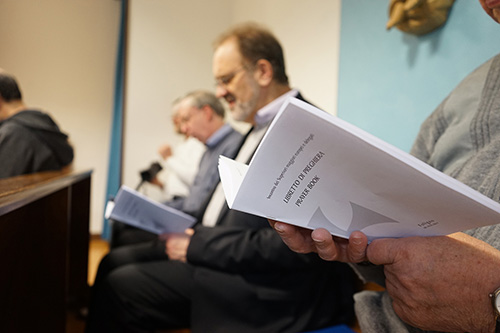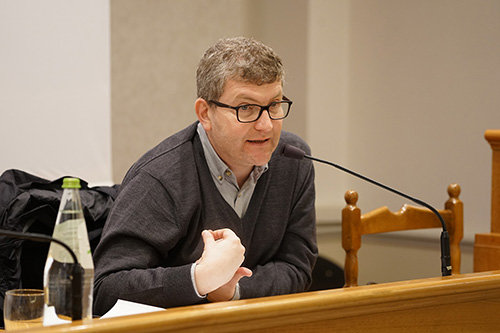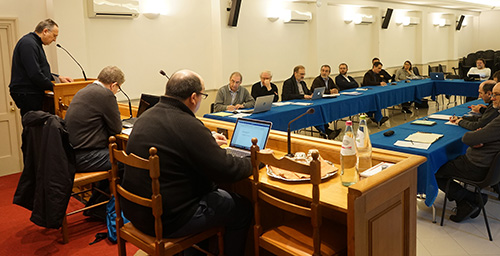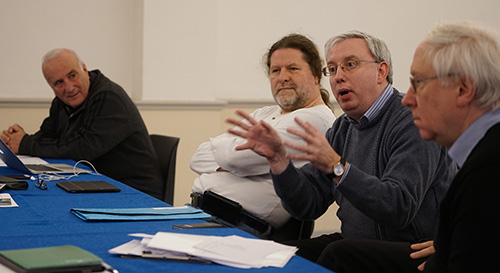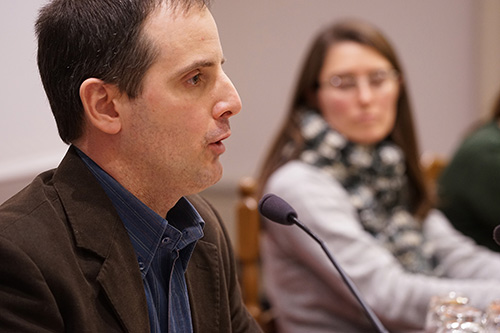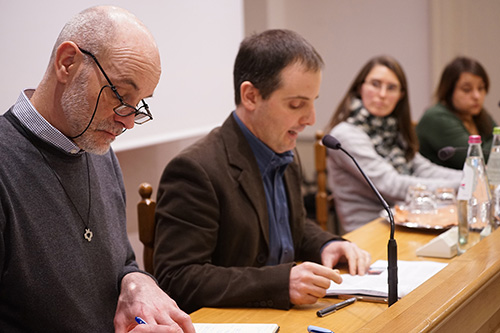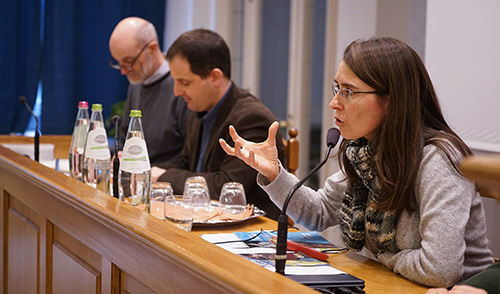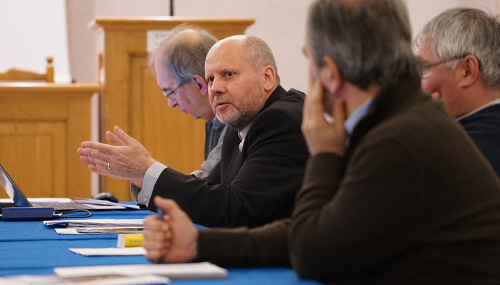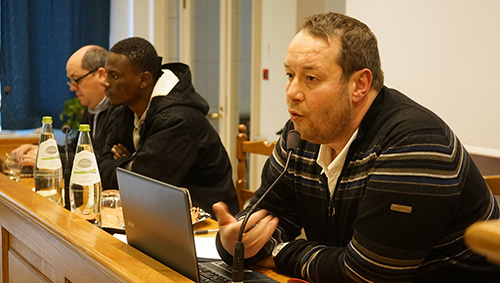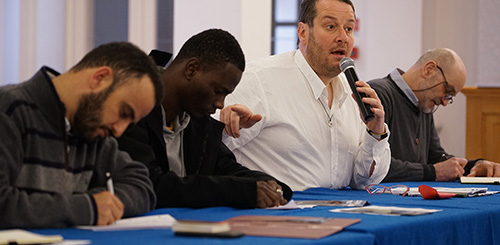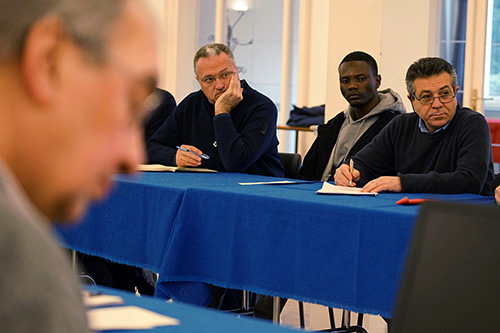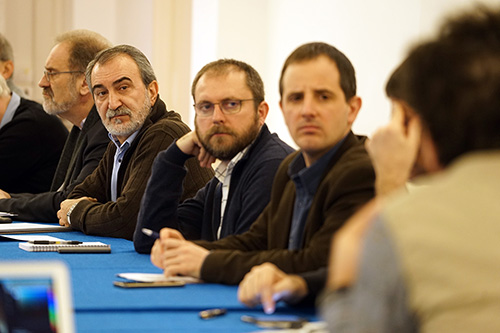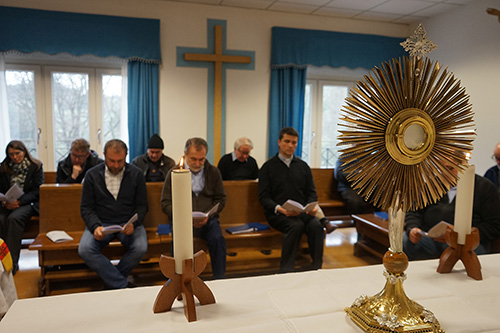“You have to choose the place where you were born?”
The major superiors of the Dehonian entities of Europe dedicated the first day of their meeting to a reflection on the theme of migration in Europe. The current situation was presented by Fr. Camillo Ripamonti, a Jesuit from the Astalli Center, a refugee project of his community.
People who dream of reaching Europe pay $2,000–3,000 USD to traffickers. But the one-way journey often asks the ultimate price: human life. From 2011- 2016 the Mediterranean became the tomb for over 35,000. The majority of refugees arrive via the Mediterranean.
According to Fr. Camillo, hospitality cannot be conditioned. The migratory situation in Europe is very fluid, both in regard to the presence of migrants on European soil and in regards to the countries of departure.
Elizabeth Tricarico of Caritas in Foligno shared the experience of welcome offered in churches and in families; she said that those who welcome receive the love that they give. The main challenges are in finding a balance between the rights and the duties of those who are welcomed.
“We are witnessing a real ecumenical and interfaith cooperation through migration,” said Federico Biserna of the Sant’Egidio community. He recalled not only the Christmas dinner for 500 Christians prepared by Muslims, but also the project of humanitarian corridors. Welcome through a humanitarian corridor guarantees, according to the Community of Sant’Egidio, security to those who flee as well as to those who welcome. The project is in collaboration with Sant’Egidio, Tavola Valdese and Protestant churches in Italy and is self-financed.
Many refugees show a desire to participate in contributing to the country, learning the language and knowing its culture. They are not afraid to take responsibility and work that is not done by Italians. “You have to realize that those who come will become Europe’s future,” he said.
Sr. Maria Jose Rey Merodio, an Argentine missionary in Rome, coordinates within the Astalli Center the “Community of Hospitality” project for refugees (both individuals and families) who are hosted by families and religious institutions. The project currently involves 30 congregations including the General Curia of the Dehonians.
The afternoon session opened with sharing of the experience of Fr. Giovanni Mengoli, SCJ, in dealing with the Villagio del Fanciullo of Bologna which attends to underage unaccompanied refugees. It offers not only hospitality but above all, education and a chance of finding a future, even a simple one. “Not everyone is willing to seek asylum in Italy, like the case of many young Egyptians,” he said. “It is important to offer training that might be useful for their future.”
A number of programs are offered in a project called “Panis”. It is an opportunity for the engagement of boys to help them learn working options so that they can integrate into society. Risks? They live only among themselves and lose the opportunity to improve their language skills and integrate into society. Good times? The football championships. They are strong, perhaps not from a technical point, but in view of discipline.
The second moment of sharing came from Rocco Conte from the association of “Laici Terzo Mondo” [Laity of the Third World]. Its members develop and work in social development projects, education and economic development in Africa. Rocco presented the work that takes place in the Southern Italian Province for refugees. In a Dehonian property approximately 30 migrant men, women and families are housed. Ten are under international protection, a person has received political asylum; a third of them have already found a job, others are looking.
The initial reception services are related to health, residence permits, legal aid and translation assistance. There are also integration services such as the Italian school and the active support of research. Rocco also presented some of the challenges that complicate the work.
Of note was a discussion that took place between representatives of the European entities. Their realities are very different and the expectations are even more so. It is not necessary for European Dehonians to create new organizational structures; they can connect with existing programs by collaborating with them. For our part some entities may give the availability of their space (not just rent). What matters most are the signs that make a more credible testimony than words.


